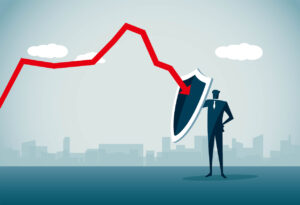When is it safe to ignore the haters?
The saying about ‘all publicity is good publicity’ doesn’t hold—but not every bad headline does real damage. Here’s how you can understand negative press’ true impact.

There are two generally recognized forms of publicity: that which helps your company, positively affects target markets and drives greater sales, and that which damages your brand and results in reduced revenue.
Muhammad Ali and P. T. Barnum famously believed only the first one exists, while the crisis communications industry’s very existence argues the other side.
There is also a third category: publicity that’s irrelevant to your company’s brand, bottom line and success. Good or bad, this publicity is largely or completely ignored by your target market, like a restaurant with a 4.8-star Yelp rating which gets a solitary one-star review.
Boeing recently dealt with this type of publicity when it was rebuked by former South Carolina governor Nikki Haley for seeking a federal bailout during the COVID-19 pandemic. Haley, who brought Boeing to her state as governor, left its board of directors because she said the company’s struggles were self-inflicted and predated the pandemic.
Haley’s widely-reported comments didn’t stop Boeing from working with the Federal Reserve to receive a $25-billion bond. The Chicago Tribune noted that the bond was essentially a bailout from the Fed, even though it wasn’t the $60 billion direct bailout Boeing originally sought and even though “Boeing was never in imminent danger and had $15.5 billion cash on hand at the end of March.”
Boeing focused on its target market instead of the critics. The company got the bailout, its stock value improved, and the same week as the bond it secured a $128 million federal contract increase on top of an existing multi-billion dollar missile defense contract.
Did Haley’s criticism hurt Boeing’s brand? Perhaps with some conservative politicos, but the remarks didn’t touch Boeing’s bottom line. Boeing correctly ensured that government contract officers, airlines, and elected officials saw their company continue to be able to provide its products. It also didn’t do anything to invoke the wrath of regulators.
Contrast Boeing’s success in May with the impact of bad publicity in 2018 and 2019. Widespread criticism in light of two deadly plane crashes effectively halted what had been a nine-year period of substantial stock increases. Those crashes directly led to regulators first investigating—then halting—production of its 737 MAX airplane line, the resignation of Boeing’s CEO, and the company’s first annual loss in decades.
As of May 2020, Boeing’s “tens of thousands” of 737 MAX orders are on hold and may be so until the end of 2020, according to Cnet, because of regulators and buyers not trusting technological failures which contributed to the crashes.
The difference was all about target markets. Boeing displeased its most important audiences last year, and nine years of growth came to a skidding halt. In 2020, the noise didn’t stop the company’s finances from being strong, investors from being happy, or contracting officers from being confident.
A lot of companies have infused fear into their companies in an age of online reviews and social media. But whether you’re earning $77 billion a year like Boeing or $77,000 as a one-person operation, success comes from focusing your branding, marketing and publicity exclusively as it relates to your target markets.
Money, emotions, and time spent combating irrelevant bad publicity will dilute resources which could be focused on growth. This is true whether your critics are legitimate and prominent like Haley, or anonymous commenters on a blog. Savvy pros will give them an equal lack of attention.
Dustin Siggins is CEO of Proven Media Solutions and a business columnist.






